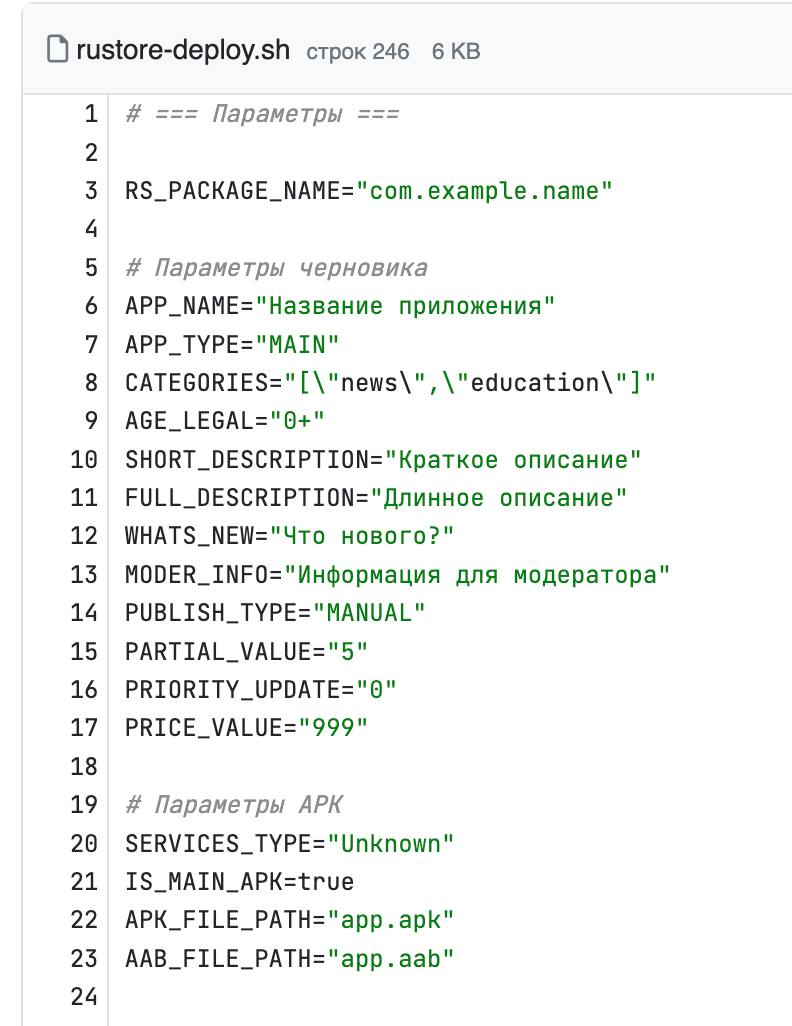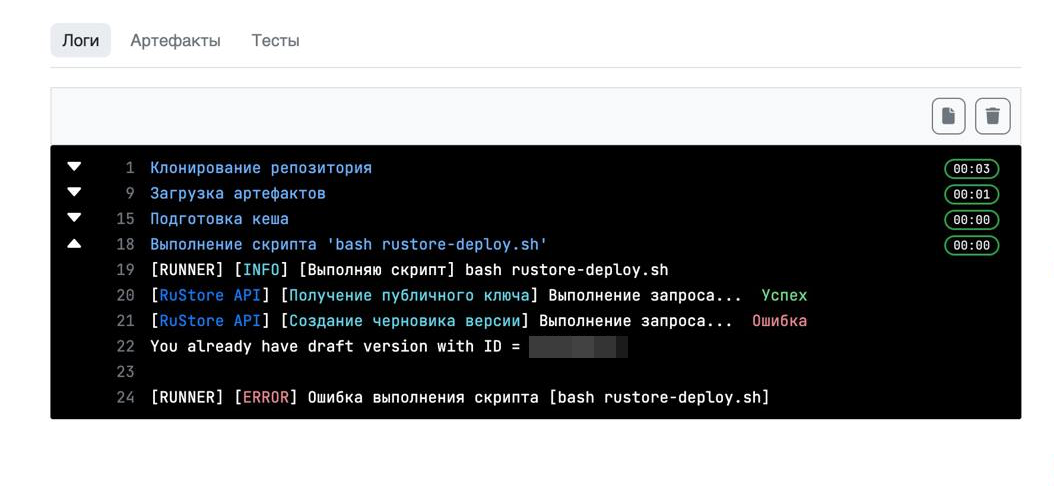Project Setup for RuStore Integration
This article outlines the steps to configure your project for integration with the RuStore app marketplace. This integration automates routine tasks, enabling you to build new app versions from source code and submit updates for moderation.
7 Steps for Quick Setup
If you already have a GitFlic account linked to an additional authorization service, proceed to Step 3.
Step 1: Register on GitFlic
- Sign up via VK ID (then proceed to Step 3), or
- Complete email verification for a basic account.
Step 2: Verify Your Account
Link your account to VK ID or Yandex ID to access agent functionality:
1. Go to Account Settings → Account.
2. Select a verification method.
Step 3: Create a Company
- Name the company after your app or choose any preferred name.
Step 4: Set Up a Project
- Create a new project under the company for RuStore integration.
- During creation, add the RuStore template.
- For existing projects:
- Move the project to your company (Step 3).
- Download the RuStore template here.
Step 5: Register an Agent
Follow the instructions to set up an agent for building and deploying to RuStore:
Agent Installation Guide.
Step 6: Configure CI/CD Variables
Add these required variables in Project Settings → CI/CD:
- RS_PRIVATE_KEY: RuStore app private key.
- RS_KEY_ID: RuStore private key identifier.
Step 7: Configure gitflic-ci.yaml
Customize the pipeline file for your workflow to automate app version submissions.
Configuring rustore-deploy.sh
The script rustore-deploy.sh includes attributes for submitting app drafts and moderation data to RuStore.
For attribute requirements, refer to the RuStore API Documentation.
Example: Successful App Draft Upload
After the build and draft submission task completes, the RuStore developer console will display the new draft.
Handling Limitations
- Errors due to RuStore draft restrictions will appear in the GitFlic Agent logs.
- Example error output:
Automatic translation!
This page has been automatically translated. The text may contain inaccuracies


